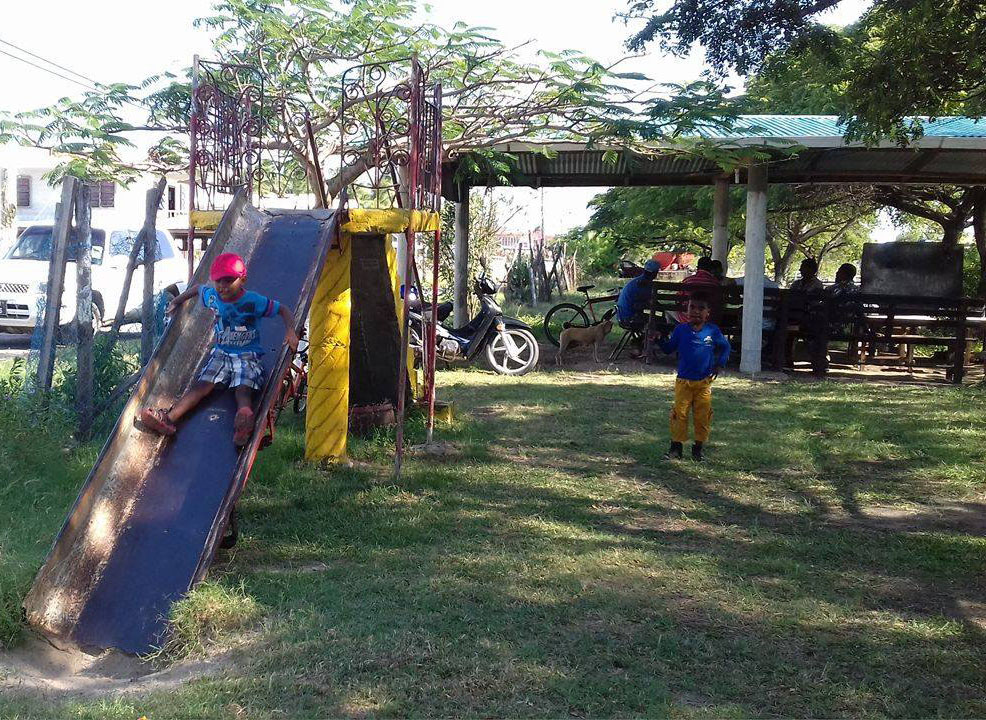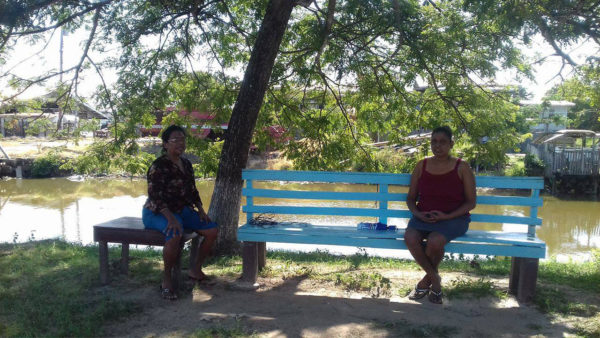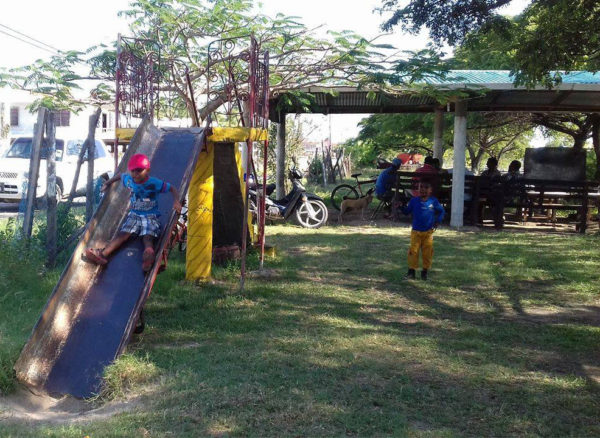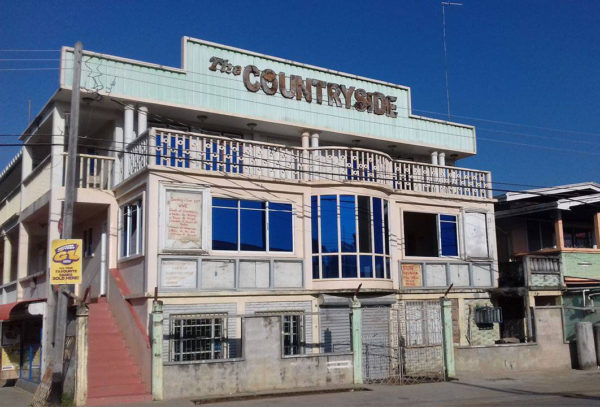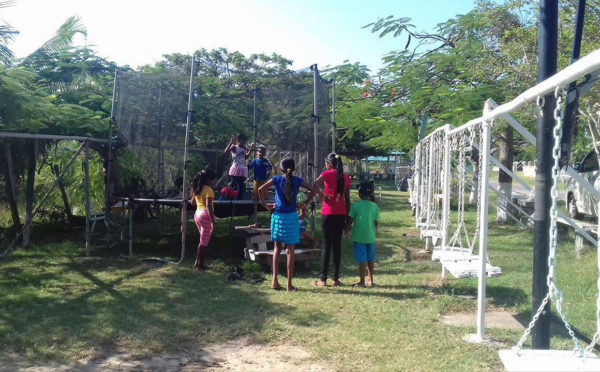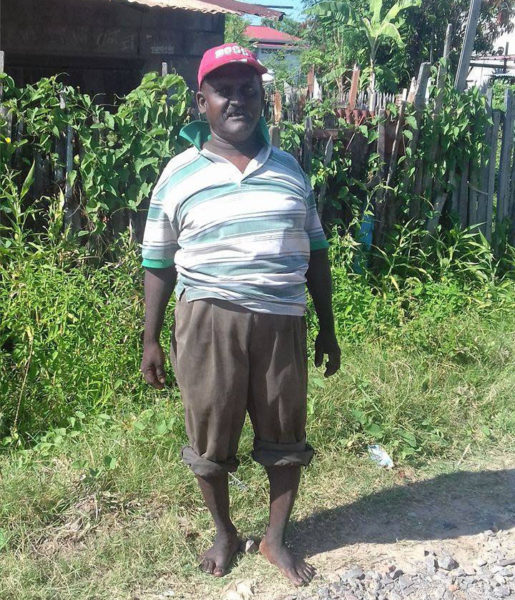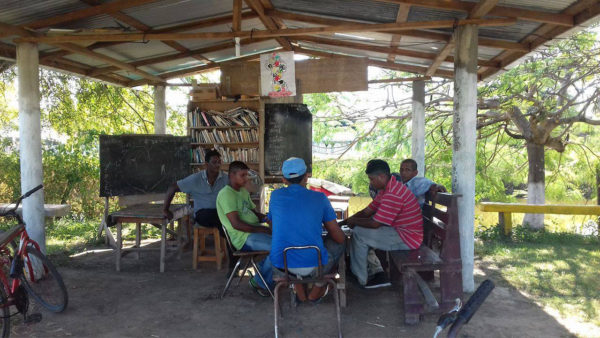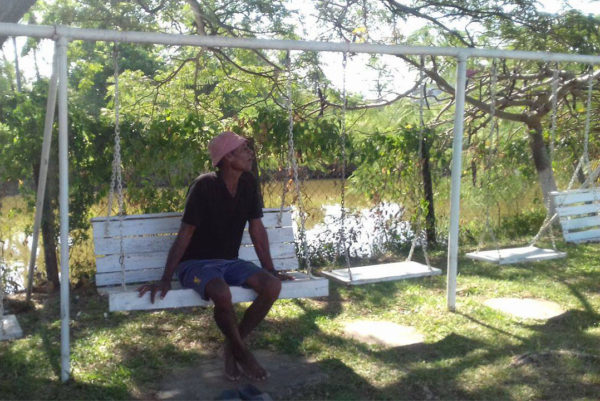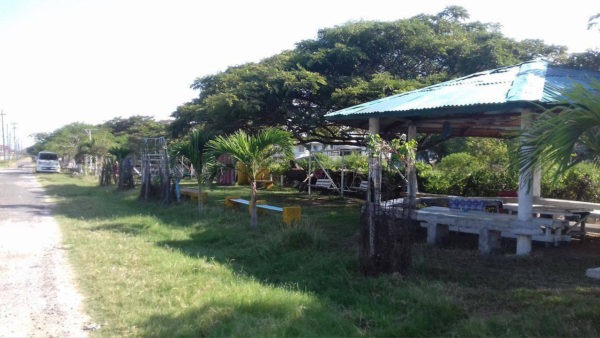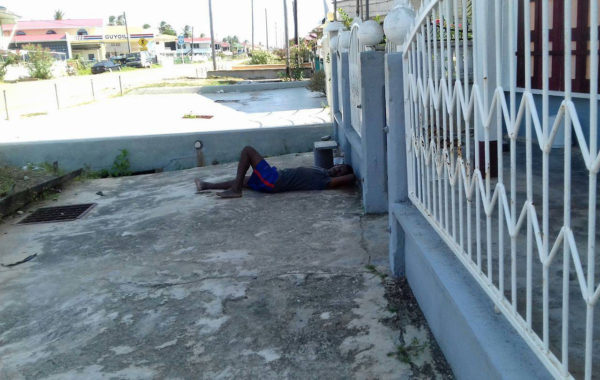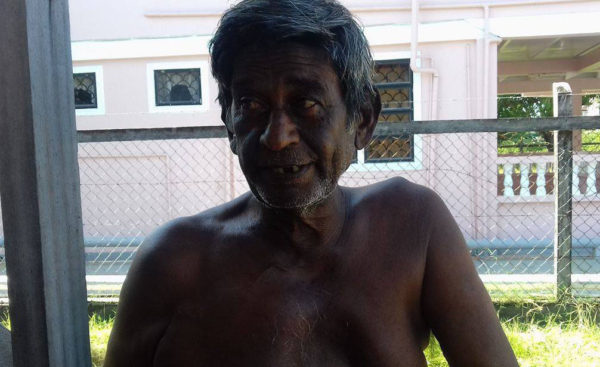Babylon, Corentyne, Berbice also called Number 64 Village is home to approximately 600 people. Most of the residents are engaged in large-scale rice farming while others are employed at the Skeldon Estate are professionals—nurses and teachers—or ply a trade.
When the World Beyond Georgetown visited last weekend most residents could be found sitting in groups under their homes engaged in deep conversations whilst their children played in their front yards; it was evident that this village is a family-friendly one. And when asked, some residents said, “It is the ideal village to raise children.”
Data (only name given), 61, who has lived in Babylon for over 34 years, said, “I married and come here, you know. And I never move out because me like the village. When me first come the village na had so many houses. People come and build house and still a lot a new house a build; plus them make up the street.”
Further up the road, witty Raswarnarine Parmanand Seecharran told the World Beyond Georgetown that he had “plenty” wives. “I get so much children me can’t able check,” he added. He explained that he was born and grew up in Babylon, then relocated to Hampshire Village. He moved back to Number 64 about one year ago. Seecharran said, “Me like live by meself, me children deh all ova, over 40 year now me a live bachelor. Nobody na got to tell you A or B or where you a go or if you knock one lil daroo. Me lately come back but me like this village it alright.”
Seecharran said he enjoys planting things in his yard. He recalled that when he was growing up people would call the village, “the land of Babylon,” but he does not know how the village got such a name.
Through one of the streets lives a Skeldon Market vendor, Hemattie Williams who said, “It is a very quiet place…, you can come and sit down and cool out a little. It’s just the cost of living; the cost of living very high and people na get the kind of job.” She stated that in her opinion since the new administration took over, life has gotten tougher. “Me a sell in the market and I can tell you from two years back to now, it get harder. You a sit down all day sometimes you na sell nothing and you got to pay you passage back and forth. I love my village and I like to live here. I get good neighboors around, it nice. Me born a this village, me grow a this village, me married a this village and me go dead in this village.” She explained that she lost her daughter to an illness some years ago and it was with the support of her fellow villagers that got her though the sad times.
In another street, 64-year-old Iris Sancho said she was born and grew up in the village and later fell in love with her next door neighbour. “Me wedding was nice, me married side by side, I can remember it was so much fun,” she said as she reminisced about her past. Sancho, a grocery store owner, said “People hardly a buy now. Times really changed. For the day so far I sell $1,500.” Next to Sancho’s house, is the ‘Black Bridge’. “Them call it Black Bridge because since it build it paint with black tar,” Sancho noted.
Both Sancho and Williams said that there are a few streets in the village that need to be repaired. “Is them big truck what a run on them streets steady, steady a break them up. When rain fall it a hard for people to come out,” they stressed. They also complained about persons dumping garbage in the drainage trench, highlighting that local authorities should look into the matter. Meanwhile, also located in Number 64 is the famous Joe Park, where they are no written rules. Joe Park was built gradually over the years by a resident named Hanuman Nanram, known as ‘Joe’.
“In 1976. I start work at GuySuCo and I noticed the trees at the estate and said I can do better. I start pick them streets small and start plant…Sometimes them school children does pass and pull out them tree but me never get bruk mind, me continue to plant and me does take care of it. Then lil bit by lil bit we start make them swings and the slide and put up the trampoline. Then me tell meself if we get a library it would be very good. So me start construct a shed so people from the area can come and play and read. We get man and woman dominoes club here and so,” Joe said. The philanthropic villager who is now 66 years old, said, “We get strict rules here. It may not write anywhere but if you see the place clean, leave it clean. When them school children come me tell them the fine if you throw one you got to clean the place. In me spare time me does slash it up and clean it up.
The pensioner said, “I always tell people, nobody to tell anybody anything here. The park is made free for everybody equally. Me na get a bad mind, me get a big heart.
According to Joe, although he has generator for the park, he shuts it down at 6 pm every day, unless there is a party or special occasion. And when there is such an event, “They don’t have to pay for the lighting plan, for gas or nothing.” He highlighted that some individuals have also contributed to the park by making small monetary donations over the years. Joe is also in the process of adding more swings to the park.
As World Beyond Georgetown traversed the streets, we met 55-year-old Rohan. When asked for his last name he said, “Rohan is me only name me get.” Rohan was walking barefooted. He had just left his farm located in the vicinity of the Number 63 beach. He explained that he loved the village. He said the only problem he encounters is when animals break the fence and enter his farm.
“Them animals does break me fence, but me a make it back every time. Me na want problem man. Me family and friends get animals, so me make it back every time,” he said. He chooses not to complain to the villagers who have animals. This publication noticed that it wasn’t just Rohan who avoids conflict in the village, most residents highlighted that they would quietly deal with a problem rather than allow it to escalate and cause conflict with other residents.
The Number 64 Village also houses the Country Side theatre, a gas station, a health centre, a Kalli Temple, two mandirs and two churches.
